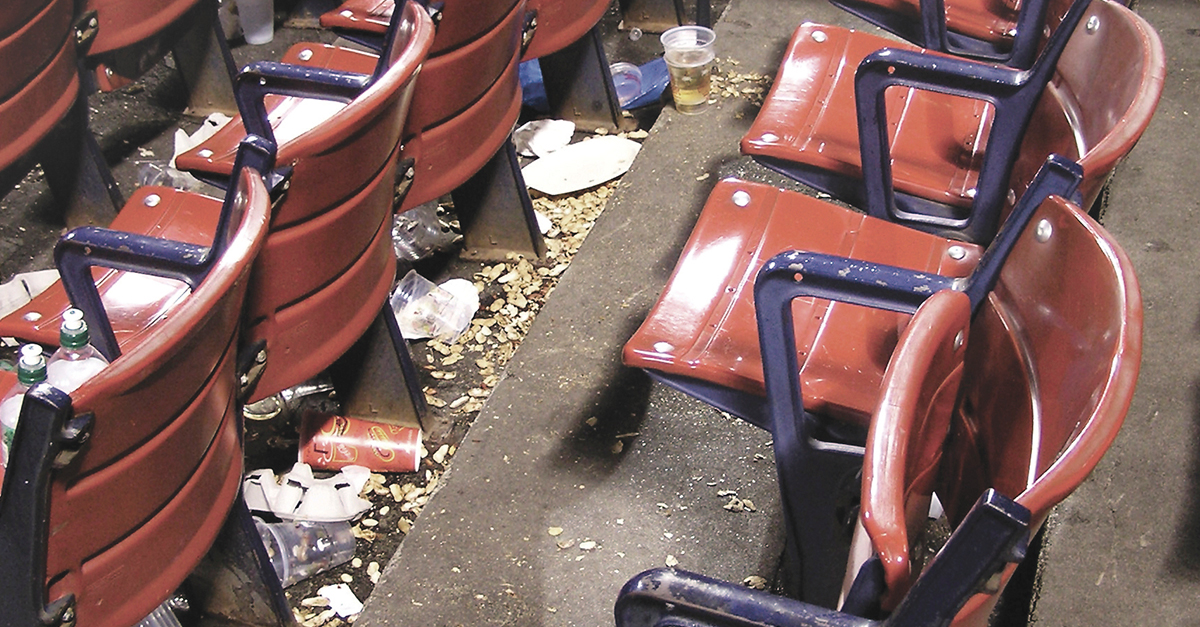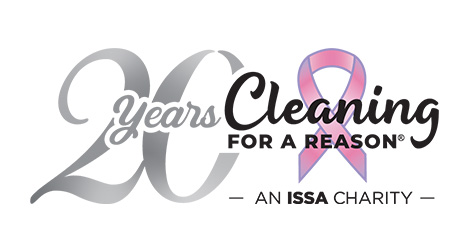Built in 1992 in Baltimore, MD, Oriole Park at Camden Yards was one of the first ballparks to go up in a downtown area offering a traditional, fan-friendly approach to hosting Major League Baseball (MLB) games.
During the past 22 years, Camden Yards has been home to many record-setting milestones for the MLB’s Baltimore Orioles: Cal Ripken Jr. played his record-setting 2,131st consecutive game here in 1995, Eddie Murray hit his 500th home run in the ballpark in 1996, and the park’s 50 millionth fan strolled into the confines in 2008, which made Camden Yards the fastest stadium ever to reach such numbers in nearly 17 seasons.
Providing the best possible experience to Orioles fans is paramount at Camden Yards. The stadium takes great care in devising and executing next-generation facility management tactics, which includes an eco-friendly approach to mitigating foul odors.
The Odor Challenge
One might expect Camden Yards to have its fair share of odor challenges. The ballpark has been around for more than 22 years and has serviced trash from almost 70 million fans who have passed through its gates.
Our trash compactor and composting areas are adjacent to the team locker room, and are also next to the loading dock where the players and VIPs enter and exit the stadium. During the summer months, the heat can cause this area to steep in trash odors that bother many—especially employees.
To help mitigate the odor issue, we sought out eco-friendly solutions that matched our “Go Green” initiative, which includes energy efficiency strategies, composting, recycling, and the use of eco-friendly concession supplies. In terms of cleaning supplies, we also employ only green products throughout the park.
Going Green
Our “Go Green” initiative has achieved some tremendous outcomes for the ballpark. For example, we recycle more than 600,000 pounds of materials each year. The stadium uses energy-efficient lighting and plumbing fixtures exclusively, while nearly 5,000 gallons of cooking oil from Oriole Park are recycled into biodiesel annually.
We also encourage fans to participate in the “Go Green” program by recycling bottles and cups in the more than 100 recycling containers located throughout the stadium. In addition, we offer a Passbook paperless ticket option, which is available on iPhones, and have a parking area to accommodate more than 100 bicycles.
Camden Yards is part of the Green Sports Alliance, an organization that helps sports teams and venues enhance their environmental performance, which has enabled us to learn and exchange information and best practices on being eco-conscious.
Since 2010, the Alliance has brought together venue operators, sports team executives, and environmental scientists to exchange information and best practices in developing solutions that are cost-competitive and innovative to environmental challenges. The organization claims 230 sports team and venue members from 20 sporting leagues.
In addition, the Alliance has grown in influence over the past four to five years with full support from MLB leadership.
“We consider it a duty to contribute to the protection of our natural resources for future generations,” said MLB Commissioner Allan H. (Bud) Selig, in a recent Green Sports Alliance announcement. Our 30 clubs are fully committed to operating in environmentally conscious ways. With the support of the Green Sports Alliance, Major League Baseball is privileged to do its part to protect the environment and to set a positive example for our fans across the globe.”
The Alliance also helps sporting venues develop eco-friendly strategies, which include the procurement of green cleaning products and the implementation of green tactics for remediation.
Additionally, it includes educating and training staff on green cleaning; developing programs that include an annual custodial effectiveness assessment and ranking of products used; and tracking items that comply with sustainability requirements from Green Seal, Environmental Choice, and the U.S. Environmental Protection Agency (EPA).
The overall strategy of this effort is to counter the 8 billion pounds of chemicals the EPA says are used each year to clean and maintain commercial and industrial buildings in the United States. If not carefully managed, these products can leach into groundwater, creating adverse effects on water quality.
With this vision in mind, we moved forward with our eco-friendly odor-management strategy.
The Solution
In our early efforts to fight the foul odors from the trash and composting area, we tried a number of homemade remedies and air fresheners, but they did not fully address the issue.
When we looked at natural products that were free of toxins and fragrances, we were fairly certain we had selected a winning team for odor mitigation.
We decided to implement a solution with a dry dispersion system that sends sub-micron-sized, odor-abating molecules continuously into the air. Rather than masking odors with the distribution of chemical-based additives commonly found in traditional air fresheners, this solution actually eliminates odors on a molecular level.
Since installing the system at the start of the 2014 season, we immediately experienced a marked reduction in odors associated with the trash and composting areas. To date, we have received zero odor complaints from players, employees, and VIPs.
As a facility with a clear focus on green initiatives, we are continually looking for new ways to improve our overall eco-conscious performance, to keep stadium occupants safe and happy, and to reduce our overall imprint on the planet.
Odor management is a challenge for any facility that has dumpster rooms, trash chutes, and loading docks. This is especially true when those areas are indoors or covered. Fortunately, it is possible to develop green odor-management strategies that are both safe and effective.



